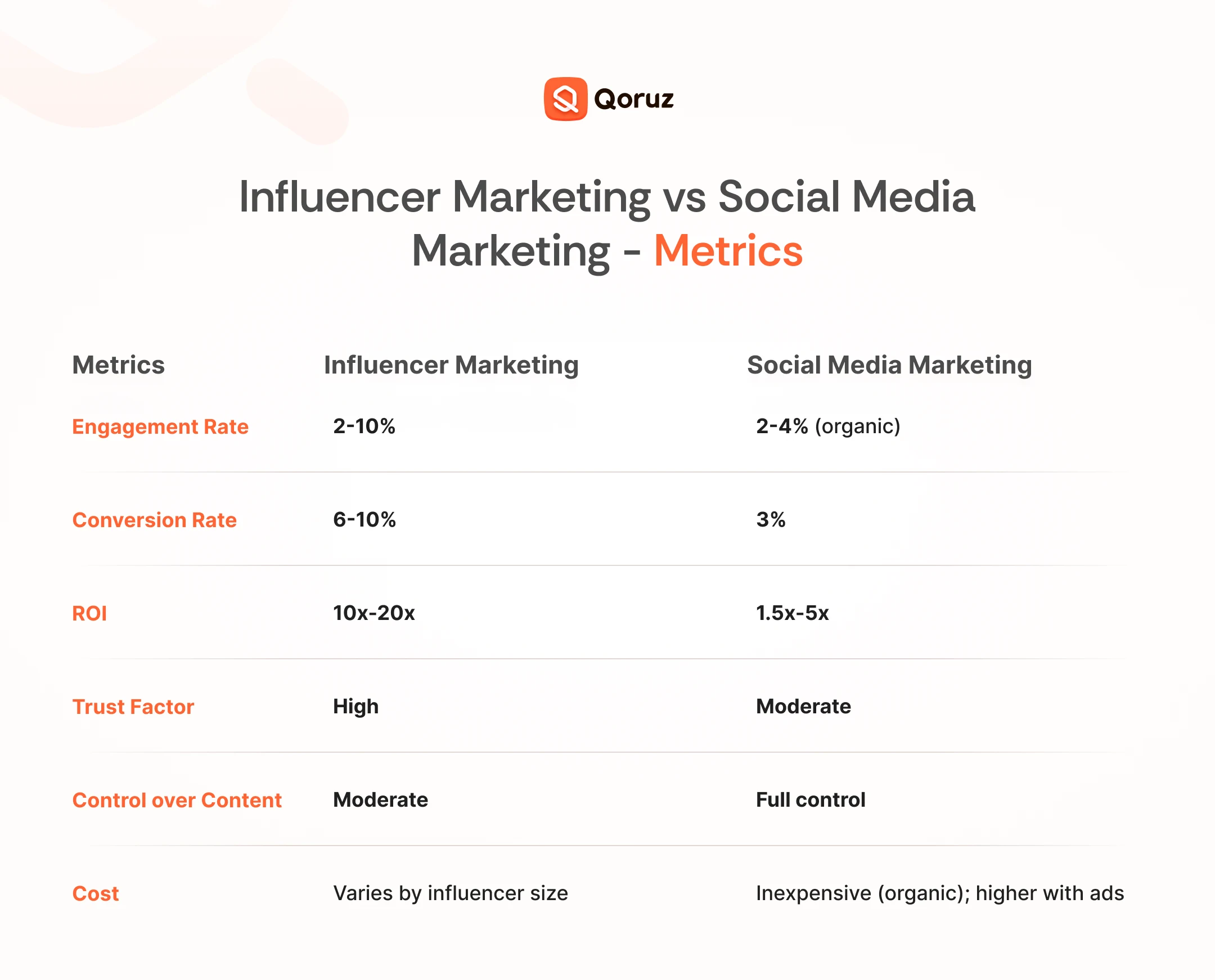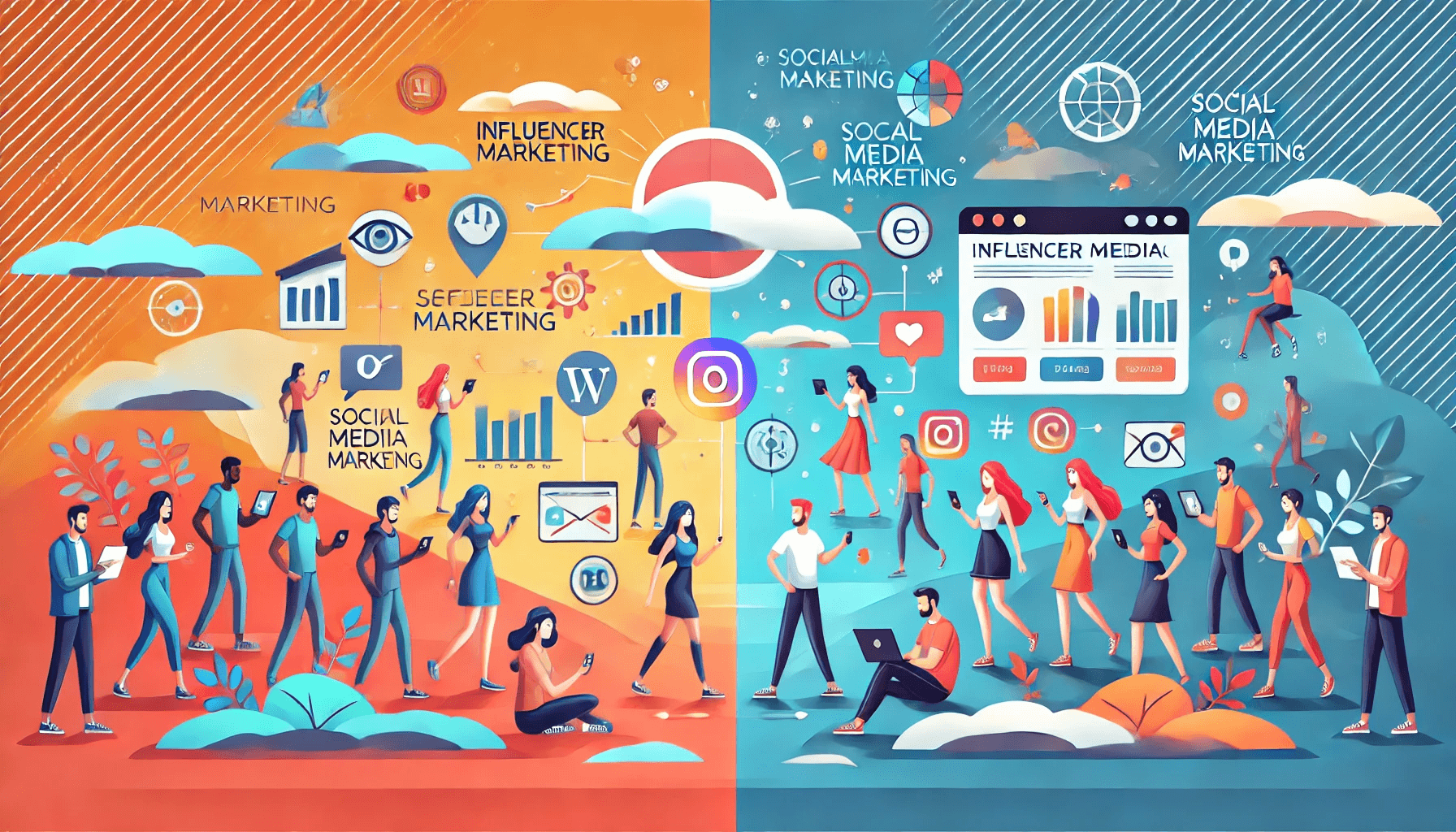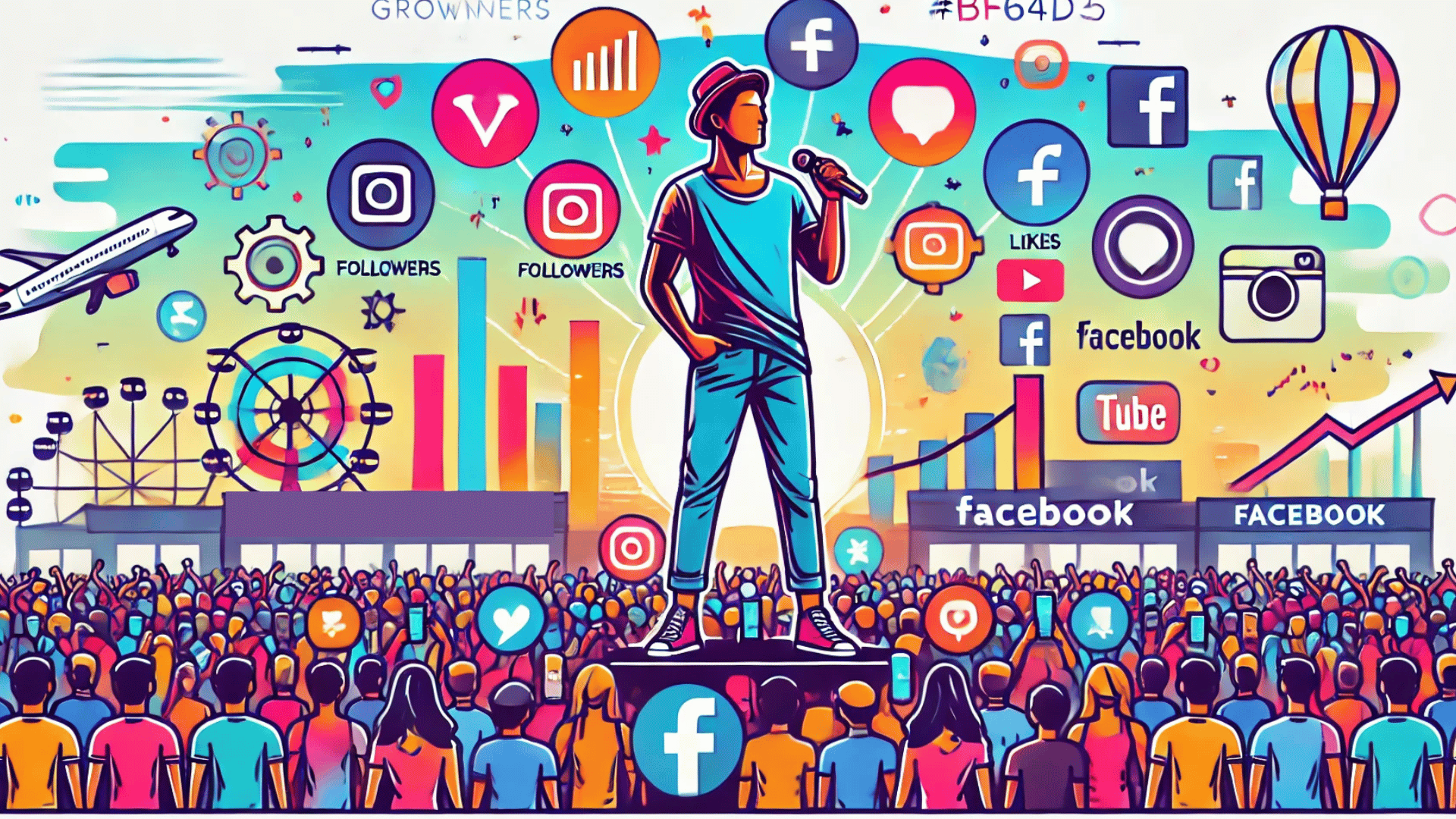Influencer marketing and social media marketing have become an important asset for marketers to take brands to the right audiences and build brand awareness while also achieving other important goals like lead generation, nurturing, and more.
While both practices use social platforms to reach audiences, they work slightly differently. Influencer marketing collaborates with social personalities with established followings, while social media marketing implies branded content and advertising directly to your target audience.
Well, while both serve their purpose, it’s important to understand the importance of both mediums. There’s no one-size-fits-all approach when it comes to choosing between influencer marketing and social media marketing.
In this ultimate guide, we’ll break down the differences between the two, and explore when and how to use them. We’ll also compare these strategies side by side to help you make an informed decision.
What is Influencer Marketing?
Influencer marketing is a way to utilize creators and their followings to reach their audience to spread awareness about your product and build relationships with them. These influencers endorse your products or services to their audience, creating a personal connection that traditional advertising often lacks. Instead of promoting your brand directly, influencers use their voice to build trust and credibility with your target audience.
Benefits of influencer marketing
- Authenticity and Trust
When you go the influencer route, they have an audience that already has a level of trust in them, and anything coming from them will appear more authentic and less of an advertisement. This leads to higher trust and often quicker conversions.
- Targeted Audiences
While social media marketing has a broader reach than influencer marketing you can take a specific and targeted approach hence talking about specific target problems and integrating products as the solution.
- Flexible Content Creation
Influencers use their own creativity and equipment to churn out the best quality content. As a brand, you just have to share the brief and specify the expectations and influencers blend in their creativity to bring the best output.
What is Social Media Marketing?
Social Media has become an inevitable part of our lives. Hardly a day goes by without scrolling through your favourite platform and that makes it an important place for brands to have their presence and be visible in front of potential customers. It’s about crafting a brand’s online voice, curating engaging content, and connecting directly with your audience.
Benefits of Social Media Marketing
- Full control over messaging
If you are a brand, you get full control and flexibility on the kind of content you want to create, which also leaves an open ground for experimentation and how frequently you wish to interact with your audience. This allows for consistent branding and alignment with brand values.
- Wider Organic Reach
While organic reach on platforms like Facebook and Instagram is declining, social media still offers the potential to engage a massive audience. With paid promotions, this reach can be expanded even further.
- Cost-Effective
Social media marketing can be done organically with minimal costs irrespective of the size of your business. While paid ads are an option, social media remains a highly affordable channel for most businesses.

Key Difference between Influencer Marketing and Social Media Marketing
| Basis | Social Media Marketing | Influencer Marketing |
| Audience Reach | Organic growth through brand channels; paid ads for reach | Immediate access to the influencer’s established audience |
| Content Creation | Brand controls content creation and curation | Influencers create content in their style, with brand guidelines |
| Trust and Credibility | Builds trust over time through engagement | Trusted recommendations from influencers lead to quicker trust |
| Budget | Cost-effective if organic; paid ads can be expensive | Influencer fees vary; micro-influencers offer budget-friendly options |
| Engagement Type | Direct engagement between brand and audience | Engagement via influencers; often more personal and relatable |
| Content Lifespan | Posts can be evergreen, but engagement fades after some time | Influencer posts tend to have a short-term buzz, but high-impact |
| Best Use Case | Building long-term relationships, community, and brand awareness | Product launches, quick brand awareness, and trust-building |
How to Integrate Influencer Marketing into Your Social Media Strategy
The real magic happens when you combine influencer marketing and social media marketing. Together, they can amplify your efforts and deliver maximum impact. Here’s how you can integrate both strategies effectively:
- Repurpose Influencer Content on Your Brand’s Social ChannelsOnce influencers create content for your campaign, repurpose it on your social media profiles. This not only provides extra content for your audience but also boosts your brand’s credibility through third-party endorsements. For a step-by-step approach, check out our Ultimate Influencer Marketing Checklist to ensure your brand maximizes each campaign’s impact.
- Collaborate on Social Media CampaignsWhen launching a campaign, collaborate with influencers to promote it across both your and their social media platforms. This helps increase reach and engagement as influencers’ followers interact with the campaign, while your brand’s audience benefits from the influencer’s endorsement. Want to know more? See our Complete Guide to Influencer Marketing for insights on launching impactful campaigns.
- Cross-promote through Email and SocialUse your email marketing strategy to drive traffic to your social media profiles, and vice versa. If influencers are promoting your brand, encourage them to invite their followers to join your email list. Similarly, emails can drive subscribers to engage with your social media and influencer content, reinforcing your brand’s message across channels.
Does Influencer Marketing Drive More Sales Than Social Media?
The answer depends on the campaign objective. If your goal is to drive immediate sales, influencer marketing has a higher impact because of the trust factor. Followers are more likely to purchase a product recommended by a trusted influencer. Conversely, social media marketing is excellent for brand awareness and relationship-building but may not lead to as many instant conversions. For actionable tips, refer to our Influencer Marketing Checklist to see how to craft campaigns that drive conversions.
Role of Influencer Marketing Platforms
Many businesses are turning to influencer marketing platforms to simplify the process. Platforms like Qoruz, Grin, and Cofluence offer analytics and tools that help brands find the right influencers, track performance, and measure results, making influencer marketing accessible even for brands with multiple campaigns. Platforms such as Qoruz provide insights into engagement rates, audience demographics, and potential impact, helping brands make data-driven decisions. For more on how to use these insights, our Complete Guide to Influencer Marketing in 2025 offers comprehensive details.
Combining Influencer and Social Media Marketing
In most cases, the best results come from integrating influencer marketing and social media marketing into one cohesive strategy:
- Amplify Influencer Content: Repurpose great content created by influencers and boost it with paid social media ads. This way, you extend their authentic voice to a larger, targeted audience.
- Use Influencer Content for Ads: Host influencer-generated content in your ads to make them feel more authentic and less promotional.
- Leverage Influencer Insights: Influencers have valuable insights into their audience’s preferences. Use these insights to align your social media content strategy and resonate with your target audience.
For an in-depth look at best practices, refer to our Ultimate Influencer Marketing Checklist.
Track Engagement Across Platforms: Use Qoruz to monitor influencer campaign performance and incorporate those insights into your social media strategy, optimizing both efforts holistically.
In Conclusion
Both influencer and social media marketing are powerful channels that can drive significant results when deployed effectively. Influencer marketing enables brands to reach trusted voices within niche communities, while social media marketing provides scale and flexibility to connect with a broader audience.
For brands looking to blend these strategies seamlessly, platforms like Qoruz can help create campaigns that are engaging and scalable. Dive deeper into influencer marketing strategies in our Complete Guide to Influencer Marketing.




Leave a Comment